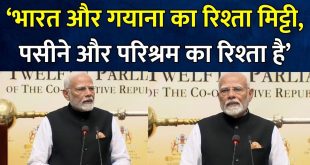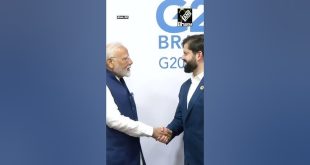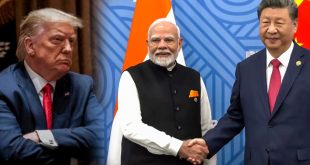Iran: After the death of Ibrahim Raisi in a helicopter crash, the people of Iran will vote (Voting) for a new president today. One of the four candidates loyal to the Supreme Leader will be elected. Although this election is unlikely to bring any major change in the policies of the Islamic Republic, its result can affect the succession of Iran’s 85-year-old supreme leader Ayatollah Ali Khamenei.
Khamenei, who has been in power for three and a half decades, has appealed to the public angry due to economic hardship, curbs on political and social freedom to vote ‘maximum’.
Important things about voting
– Voting will start at 8:00 am (0430 GMT) local time and will continue till 6:00 pm (1430 GMT) but it is usually extended till midnight.
-Ballots are counted manually, so final results are expected to be announced in two days, although initial figures may emerge earlier.
-If no candidate wins at least 50 percent plus one vote of all votes cast, including blank votes, a run-off round is held between the top two candidates on the first Friday after the election results are announced.
-Three of the candidates are hardliners and one is relatively moderate, who has the support of the reformist faction, although he is less popular.
What does the declining voter turnout mean?
Critics of Iran’s clerical regime say low and declining turnout in recent elections shows the system has lost its legitimacy. Just 48% of voters participated in the 2021 election that brought Raisi to power. Turnout in the parliamentary election three months ago reached a record 41%.
Many Iranians are running this campaign on social media
According to Reuters, the hashtag #ElectionCircus has been widely posted by Iranians on the social media platform X in the past few weeks, with some activists at home and abroad calling for a boycott of the election. They argue that a higher voter turnout will give legitimacy to the Islamic Republic.
Can the new president bring about a big change?
This election is taking place at a time when there is a war going on between Israel and Iranian ally Hamas in Gaza. Hezbollah and Israel in Lebanon, another ally of Iran, have also come close to war. Apart from this, the West is also worried about Iran’s rapidly advancing nuclear program.
The next president is not expected to make any major policy changes on Iran’s nuclear program or support for militia groups in the Middle East, as Khamenei takes all decisions on top state affairs. However, the president runs the government on a day-to-day basis and can influence Iran’s foreign and domestic policy stance.
Who are the major candidates?
A hardline monitoring body made up of six clerics and six jurists allied to Khamenei vets candidates. It approved only six candidates from an initial pool of 80 to run, with two hardline candidates dropping out.
Prominent among the remaining hardliners are Mohammad Bagher Ghalibaf, the speaker of parliament and former commander of the powerful Revolutionary Guard, and Saeed Jalili, a former nuclear negotiator who served four years in Khamenei’s office.
The only comparatively moderate, Masoud Pezeshkian, is loyal to the country’s theocratic regime but advocates peace with the West, economic reform, social liberalization and political pluralism.
Pezeshkian’s chances rest on reform-minded voters who have stayed away from voting over the past four years, as previous presidents have made little change.
 Indian Thought Latest News & Views
Indian Thought Latest News & Views



